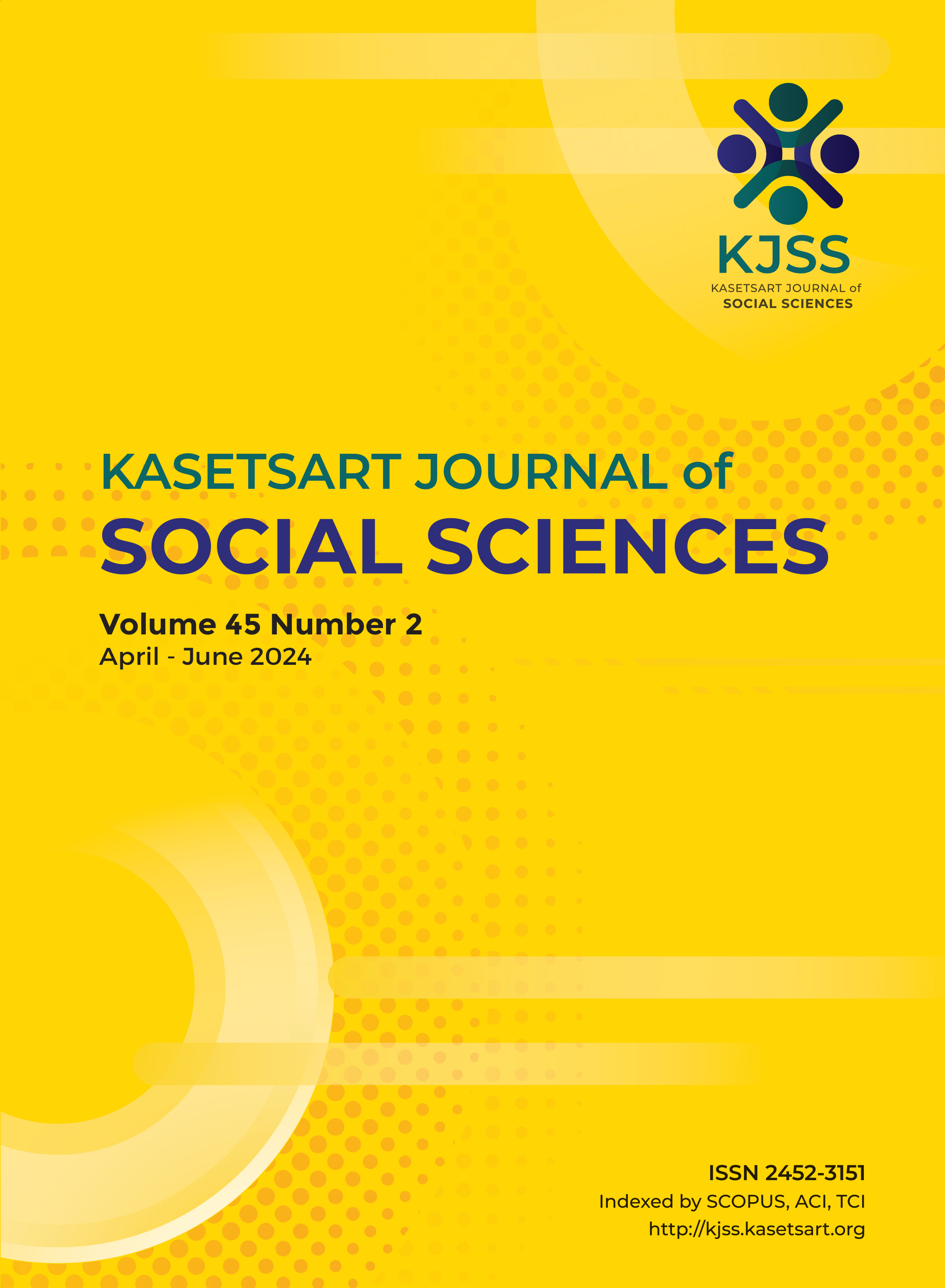A virtual reality game designed to enhance empathy and acceptance for individuals with Autism: An experimental study focusing on people in a workplace
คำสำคัญ:
acceptance, autism, disability, empathy, virtual realityบทคัดย่อ
People with high-functioning autism are capable of working as effectively as other individuals because they are often reliable, punctual, good with routine, and have a high level of attention to detail. However, it is exceptionally challenging for people with high-functioning autism to work together with the people that do not fully understand autism. This study adopts virtual reality technology to develop a game intervention that aims to educate and enhance autism acceptance and empathy among employees. Using a head-mounted display (HMD), 35 participants between the ages of 18 and 50 were immersed in a virtual world that simulated the experiences of a person with autism. Haye’s (2013) PROCESS Model 4 was employed to analyze the data. Results suggest that VR game intervention increased users’ autism knowledge, empathy, as well as acceptance for people with autism. The study further illustrates an underlying process of how people develop acceptance for people with autism.
ดาวน์โหลด
เผยแพร่แล้ว
รูปแบบการอ้างอิง
ฉบับ
ประเภทบทความ
สัญญาอนุญาต
ลิขสิทธิ์ (c) 2024 Kasetsart UniversityThis is an open access article under the CC BY-NC-ND license http://creativecommons.org/licenses/by-nc-nd/4.0/










